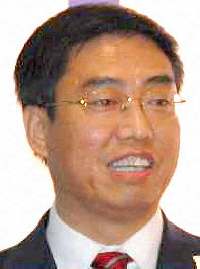Society
Plagiarism prof stripped of prize
By Chen Jia (China Daily)
Updated: 2011-02-11 07:41
 |
Large Medium Small |
BEIJING - A 45-year-old former professor who has been embroiled in a plagiarism scandal for the past three years has been stripped of a top national award by the Ministry of Science and Technology.
In 2005, Li Liansheng, who was a professor at the prestigious Xi'an Jiaotong University in Northwest China's Shaanxi province, won the ministry's second-prize for scientific and technological progress for his apparent research into scroll compressors.
But the ministry said an investigation has confirmed that Li's material had been copied from others and data on the economic benefits of his work was faked.
The ministry said it will take back the 100,000-yuan prize money ($15,200) and order the return of his certificate.
Li is a Cheung Kong Scholar. That award, funded by Hong Kong billionaire Li Ka-shing and the Ministry of Education, honors outstanding professors at Chinese universities.
News that the ministry is stripping him of his award for scientific and technological progress comes three years after six colleagues first claimed that the energy and power studies expert had plagiarized the work of others.
|
 |
|
Li Liansheng was a professor at Xi’an Jiaotong University.
|
"We will dig up the past of those researchers who fake their works and punish them," he told China Daily in November 2010.
The country has more than 2.3 million workers in the science and technology field and the number of research papers published on the subject has topped the world.
The intense competition to get work published has led some researchers to exaggerate their achievements, said critics.
"In China, we care whether a paper is published in a magazine more than we care about the paper's quality and academic influence," Rao Yi, dean of the School of Life Sciences at Peking University, was quoted as saying in a report in China Youth Daily.
Universities and colleges are ranked according to the number of academic papers their staff can get published and the number of references they get in influential journals.
Critics said the fact that universities' prestige and funding can depend on their researchers getting work published means they sometimes protect academics who break the rules.
In Li's case, the university where he worked did not begin an investigation into the allegations until May 2009 and only recently clarified on China Central Television that it was probing the plagiarism scandal.
Xi'an Jiaotong University sacked Li in March 2010 after his six colleagues had repeatedly posted letters to the institution and published them online.
"Due to the severe academic malpractice of Li Liansheng, the university has decided to remove his title of professor and terminate his employment contract as a teacher," said a statement published on the university's website.
Yang Shaokan, one of Li's colleagues who was among the six complainants, said he first realized Li had plagiarized the work of others when he noticed that the research for which Li was honored was not in his field of expertise.
Yang shared his doubts with five other professors before they together went to the university's authorities.
He said the university initially turned a deaf ear to their reports, saying the matter affected "the reputation of Xi'an Jiaotong University and the country".
But the six professors used their real names to expose about 30 examples of Li's plagiarism online, which attracted more than 60,000 comments in a single month.
The case was also picked up by the media and pressure mounted on the university to investigate.
China Daily
(China Daily 02/11/2011 page3)
| 分享按钮 |